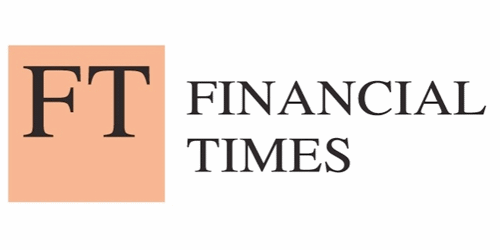Olivia Smith, co-founder of the Lower East Side gallery Magenta Plains, is blessed with a positive mindset — and a can-do attitude. “There are some severe obstacles to doing business right now, but we do have the opportunity to engage, to educate and to entertain, rather than focusing too much on sales,” she tells me over Zoom from Dallas, where she has decamped to join her artist boyfriend, Israel Lund, during the US lockdown.
Smith is, however, a little nostalgic for the pre-Covid days as she prepares to show work by the in-demand, mid-career, American artist Zach Bruder on the inaugural Frieze Viewing Room that replaces the New York fair this week. “It’s normally our busiest time of the year,” Smith explains, echoing the experience of many of her counterparts who would normally benefit from the art market’s high season between March and June. Her gallery managed to show for the third time running at this year’s Independent fair, which closed on March 8, just before New York Mayor Bill de Blasio declared a state of emergency.
Smith describes the week of Independent — which also coincided with a show opening and her 32nd birthday — as “an incredible time, the last hurrah”. Since then, it’s all been distinctly virtual. In the run-up to Frieze, Magenta Plains showed on the Dallas Art Fair’s online viewing room and Smith is grateful to the organisers of both events for changing tack and keeping “some semblance of normalcy” to the art market calendar. “Our artists have been preparing their work around these fairs,” she says. Bruder, whose haunting, surreal paintings combine familiar folklore with contemporary culture, was understandably “incredibly disappointed” that the fair was cancelled, Smith says, but has at least been able to build on the growing support for his work by making new pieces for the solo online showing (priced up to $10,000). Zach Bruder's 'Bounty' (2020).
Smith is also very grateful to David Zwirner gallery, which included Magenta Plains on its first Platform, an initiative that gave a big helping hand to 12 of New York’s smaller galleries by hosting them and one of their artists on its high-tech website between April 3 and May 1. “It’s been great to have the Zwirner platform, and so good to show with those other galleries, as we were trying to work out how best to adapt to the new situation,” Smith says. She showed and sold works by Nathaniel Robinson on Platform, a good continuation of the gallery’s success with him at the Independent fair, she says.
Smith, a trained artist, co-founded the gallery just four years ago with two other practising artists, Chris Dorland and David Deutsch. She is responsible for the day-to-day management, including adapting to the new normal. “We are a young gallery, with limited resources, so I was already doing things like IGTV [Instagram’s video application] and using social media, though more sporadically,” Smith says. Before joining forces with Dorland and Deutsch, Smith had spent three years running Exhibition A, an online platform for contemporary art editions.
Her subsequent grip of social media and other e-commerce marketing skills has come in handy: for the Dallas fair, Smith narrated a dedicated IGTV video to accompany the work of Don Dudley and the gallery plans the same for Zach Bruder during Frieze. “We’re putting work out there as best we can,” she says. Since closing the physical gallery in March, “We’ve done our own, homegrown version of an online viewing room,” Smith says, with characteristic modesty. This is currently hosting the planned solo show by the American artist Jennifer Bolande, The Composition of Decomposition (until May 31), recently reviewed by the New York Times as one of only two exhibitions worth viewing virtually. “For an artist who hasn’t had a solo show in New York for 12 years to get a review during a pandemic feels pretty special,” Smith admits.
'Endeavor' (2019) by Zach Bruder Her gallery is also rooted in an agile and collaborative ethos that seems to sit well in these complicated times. As well as being founded by three artists — Smith refers to it as artist-led though emphasises “we’re still a commercial entity” — some of its artists are also adept gallerists. These include Peter Nagy, who ran Nature Morte in New York’s East Village and now in New Delhi, and the sculptor Tiril Hasselknippe, who had a gallery in Malmö. “It’s not a formal mission but there’s certainly a spirit of hands-on collaboration,” Smith says. To come up with its distinctive name of Magenta Plains, its three founders played what Smith describes as “an Excel version of the Surrealist ‘Exquisite Corpse’ game”, until they found the words on which all three could agree.
Helping to keep spirits up has been the gallery’s membership of the New Art Dealers Alliance (Nada), which has enabled its many small enterprises to communicate and act together during the Covid-19 crisis so far. “There’s been some good camaraderie between the Lower East Side galleries, and the Nada forum has been a safe place to ask questions,” Smith says. These mostly concern rent relief for their empty galleries and the availability of grants for artists, “Things we are all trying to figure out,” Smith says.
As things currently stand, the majority of galleries are not eligible for the business relief for which other small businesses can apply in the US. Such additional concerns, plus the pivoting towards a purely online audience, mean that Smith’s workload is intense: “I’m still pouring myself into the gallery,” she says. Like many of us, she misses seeing art in real life, though doesn’t have time for some of the alternative cultural fixes out there. She is, however, trying to exercise more, cook, speak to her friends and even write poetry, something she used to do more regularly. In her words: “It’s about how to maintain my spirit, health, relationships and the gallery just now.”

